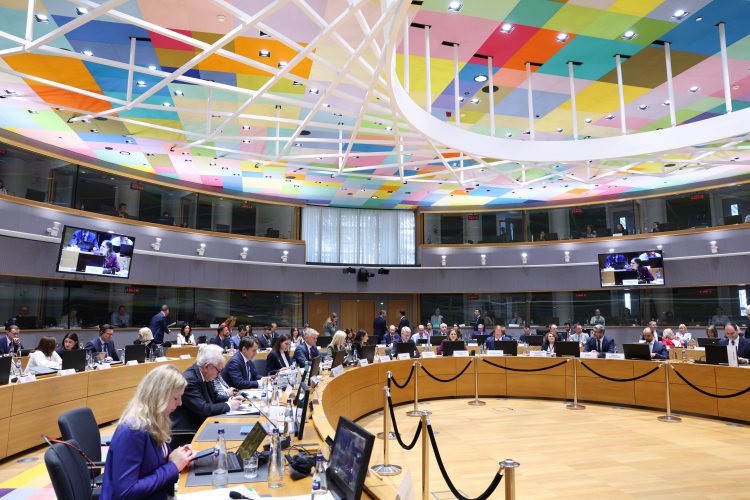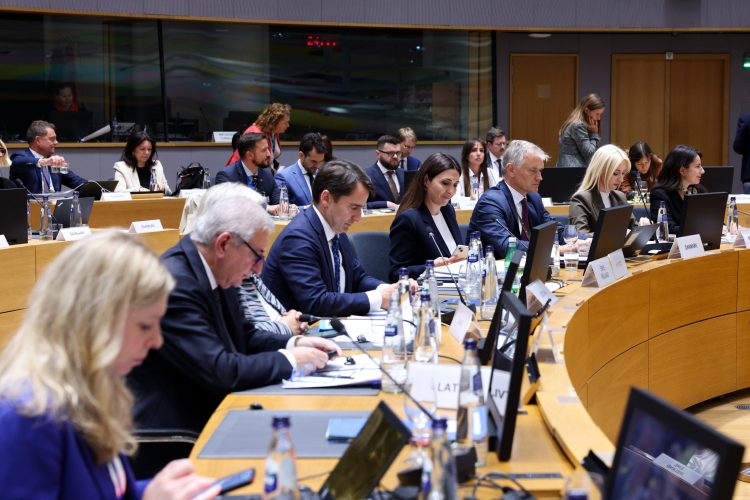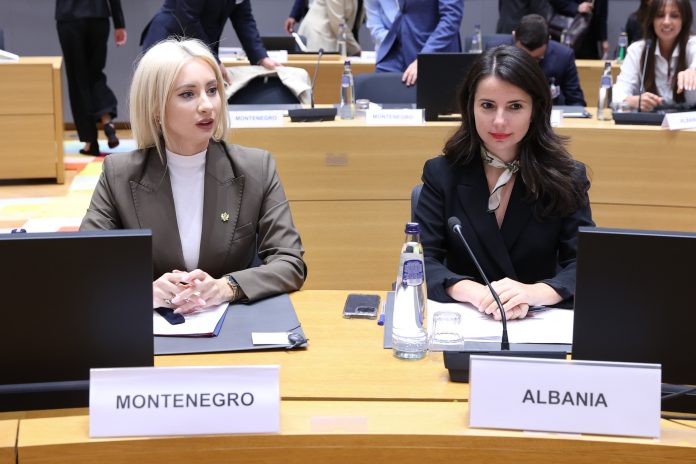“The rule of law remains the key pillar of Montenegro’s European path, not only as a condition for negotiations, but also as the foundation of the values we are building for the future of the state,” said Minister of European Affairs, Maida Gorčević, at the meeting of the EU General Affairs Council (GAC) held today in Brussels. The Council, dedicated to the topic of rule of law and chaired by Denmark’s Minister for European Affairs, Mari Bjerre, hosted the ministers for European affairs of Montenegro, Albania, North Macedonia, and Serbia.
Speaking before the members of the Council, Gorčević emphasized that Montenegro continues with determination to implement reforms in the areas of judiciary, fight against corruption and organized crime, as well as the protection of fundamental rights of citizens. She recalled that measurable results have been achieved in investigations and indictments against high-ranking officials, which, as she noted, clearly shows that justice applies equally to all, while also pointing out the increase in convictions in the field of organized crime, noted in the latest Non-paper for Chapters 23 and 24.

The Minister pointed to progress in the area of asset confiscation, highlighting that the number of cases of temporary and permanent seizure of illicit proceeds is increasing, and announced the adoption of a new Law on Confiscation of Property Acquired through Crime. She also particularly mentioned successful international operations in cooperation with EUROPOL, the FBI, and the DEA.
Speaking about strengthening institutional capacities, Gorčević stated that a competition was announced for the employment of 815 police officers, while in the judiciary new prosecutors and judges were appointed in specialized prosecution offices and courts, thereby improving efficiency in resolving complex cases. She also recalled that the Government launched a constitutional amendment to remove the Minister of Justice from the Judicial Council, in line with the recommendations of European partners.

She placed special emphasis on reform results in the area of electoral legislation. By adopting the laws on financing of political parties and electoral campaigns, on the election of councilors and MPs, and on local self-government, Montenegro, as she stressed, confirmed its political maturity and commitment to modernizing the electoral system, strengthening transparency and citizens’ trust in institutions.
“Our actions are not only of a technical nature, but substantive steps towards building a society in which justice, accountability, and rule of law apply equally to all. Montenegro remains strongly committed to European values and is ready, in partnership with the EU and international partners, to build a sustainable and efficient governance system, with the goal of becoming a full member of the European family by 2028,” concluded Gorčević.
MINISTRY OF EUROPEAN AFFAIRS


